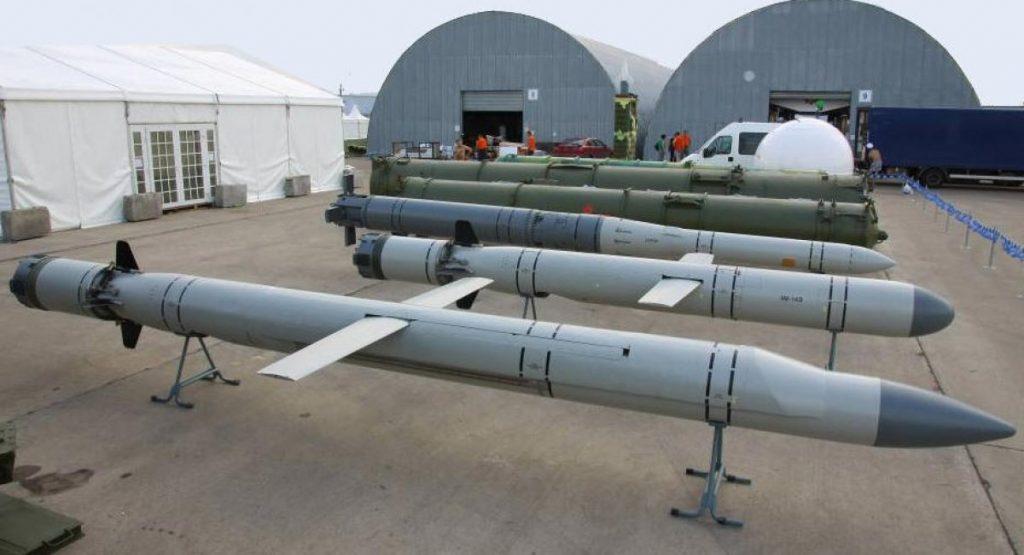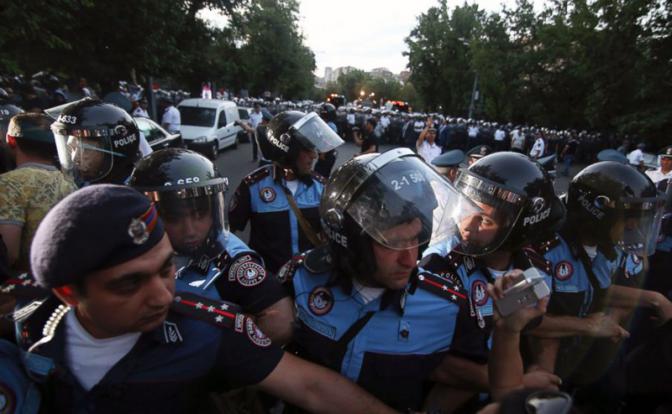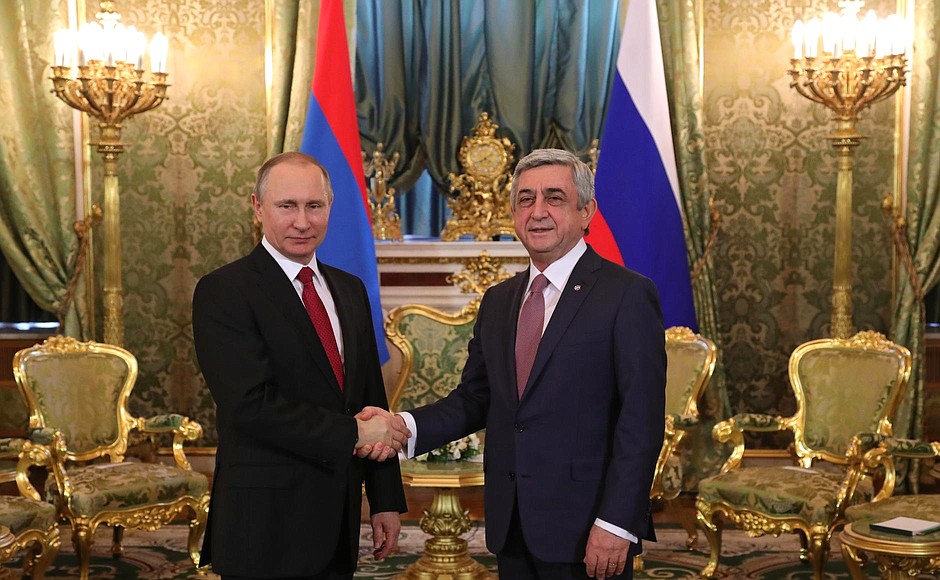Post-Soviet nations are actually assisting Russia in evading sanctions and manufacturing weapons with the aid of Western technology.
It is evident that even Russia’s staunchest allies, such as Eritrea and Belarus, are unable to provide assistance, and the lack of essential microchips hampers production. However, the nations that ostensibly maintain a public distance from the Kremlin have proven to be quite useful; they have not yet faced restrictions on exporting dual-use goods that are in demand by Russians.
War myopia, i.e. the failure to perceive the long-term consequences of this situation during times of war, will be detrimental to all parties involved, including the West. The indirect financing of the Russian armed forces should receive greater scrutiny and attention.
Do post-Soviet Asia and the Caucasus want the war to continue?
Russia is actively bypassing sanctions imposed by the European Union and the United States by acquiring Western microchips from nations in the Caucasus and Asia. This enables Russia to manufacture advanced missile technology with great precision.
The New York Times reported on April 18, 2023, revealing a document from the Bureau of Industry and Security. According to the document, Armenia witnessed a staggering 515% surge in the import of chips and processors from the United States in 2022 compared to 2021, and a 212% increase from the European Union during the same period. Furthermore, Armenia subsequently exported 97% of these products to Russia.
Sources cited by the New York Times highlighted a significant rise in the trade of chips and other electronic components to Russia via Armenia, Kazakhstan, and other countries.
The West intends to eliminate these opportunities when considering implementing the 11th package of sanctions. Interestingly, as per reports from Western media, the European Commission is contemplating imposing sanctions on certain Chinese companies for the first time since Russia’s aggression against Ukraine began. These sanctions would be imposed due to China’s “support of Russia’s war machine,” even including companies previously sanctioned by the United States.
However, if the information regarding Armenian exports to Russia is accurate, such restrictions fail to address the issue of depriving the Kremlin of the resources necessary for the production of advanced weaponry.
It should be noted that Armenia and Kazakhstan are openly distancing themselves from the Kremlin regime. A recent incident in April exemplifies this, as Yerevan and Moscow engaged in a public dispute. The Russian Foreign Ministry demanded an explanation as to why Yerevan declined participation in Collective Security Treaty Organization (CSTO) exercises while agreeing to join joint exercises with NATO.
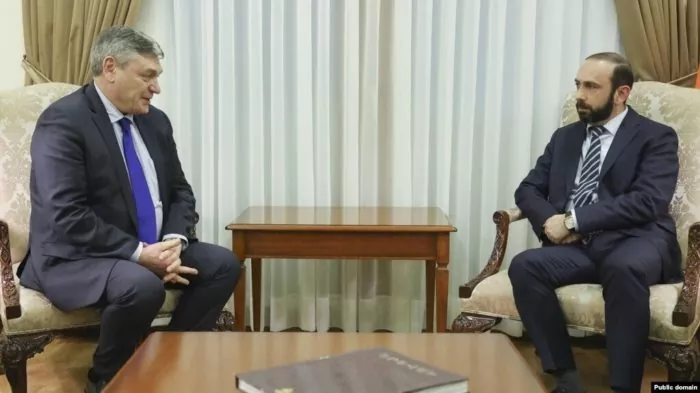
Furthermore, following the issuance of an arrest warrant for Vladimir Putin by the International Criminal Court, the Armenian Constitutional Court recognized the constitutional obligations outlined in the Rome Statute concerning the International Criminal Court. This implies that if Putin were to set foot on Armenian territory, he would be subject to arrest. On March 30, Gagik Melkonyan, a parliament member of Armenia’s ruling party, said if Putin were to travel to Armenia, “he should be arrested.”
However, “the ruling party has no such intention or desire (to arrest Putin),” said Hakob Arshakyan, the Vice President of the Armenian National Assembly.
Nevertheless, it should be noted that on May 9, Armenian Prime Minister Nikol Pashinyan and Kazakh President Kassym-Jomart Tokayev, alongside representatives from five other nations, attended the celebrations on Moscow’s Red Square. That’s rather peculiar, isn’t it?
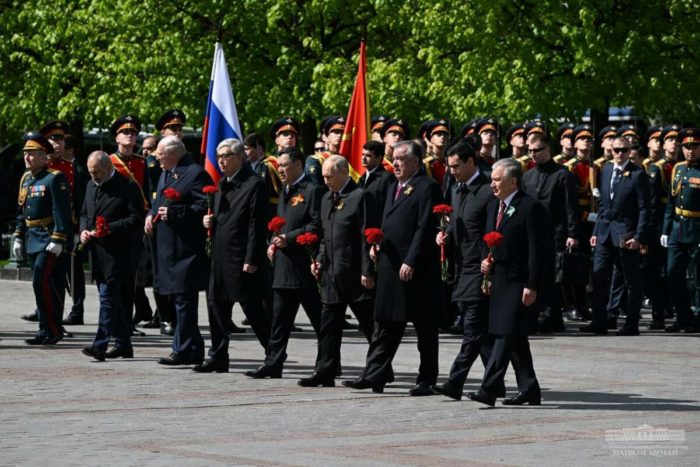
Among the post-Soviet states in the Caucasus region (Armenia, Azerbaijan, and Georgia), only the Armenian leader accepted Putin’s invitation to attend. This is surprising considering Georgia’s current amicable relations with the Kremlin.
Tensions flare in Georgia as government drifts into Kremlin orbit
Meanwhile, on May 9 in Kyiv, European Commission President Ursula von der Leyen underlined that the 11th package of sanctions against Russia would prioritize the prohibition of circumventing these restrictions.
“We continue to do everything in our power to erode Putin’s war machine and his revenues.” stated the President of the European Commission.
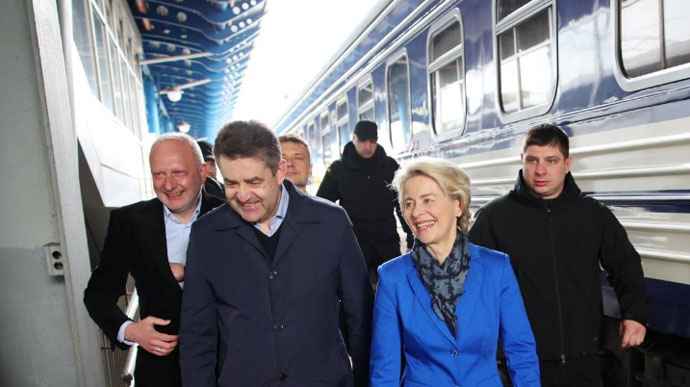
Warning to Armenia and other post-Soviet nations
What diplomatic measures can Ukraine undertake to ensure the effectiveness and expediency of these sanctions against post-Soviet and third countries, essentially serving as satellites of the Russian Federation? How can it persuade the West to take decisive action?

According to former Ukrainian Foreign Minister Volodymyr Ohryzko, it would be sufficient for the West to issue a warning to leaders the likes of Armenian PM Nikol Pashinyan regarding personal sanctions, as this would potentially prompt Armenia and other post-Soviet nations to reconsider its assistance in circumventing sanctions on behalf of Moscow. In an interview, Ohryzko shared his views, responding to media reports that suggested Armenia’s involvement in supplying Russia with military goods subject to sanctions.
“General warnings often receive a delayed response, but if Prime Minister Pashinyan is directly informed about the imposition of personal sanctions against him or his country, the situation will change dramatically and rapidly.” the diplomat stated.
During discussions surrounding the upcoming package of sanctions, the United States and the European Union have prioritized the issue of closing these loopholes to prevent the delivery of such products to Russia.
Egypt initially had intentions to sell its military production to Moscow, but ultimately reversed its decision and opted to sell to the United States, which subsequently sold them to Ukraine.
For the international community, the choice is evident: either Russia must face the complete consequences of the sanctions, or we will suffer the consequences ourselves.
Volodymyr Ohryzko asserts that the united West is resolute in not accepting defeat and will eliminate any possibilities for circumventing sanctions.
Public pressure plus diplomacy
In an interview, Italian publicist and writer Giovanni Catelli expressed that Armenia, Kazakhstan, India, and China are actively involved in selling various goods to Russia, including military technology. Completely halting such trade is a formidable challenge due to significant vested interests.
“However, the Western nations should exert every possible effort to minimize these opportunities as swiftly as possible,” remarked Catelli.

Catelli also highlighted a gradual but definite shift in the stance of “old Europe” countries, particularly France, Germany, and Italy. Western societies are becoming increasingly skeptical of Russian propaganda and pro-Russian narratives surrounding this war. People are beginning to uncover the true nature of Russia’s brutal and unprovoked aggression, which must be halted. Debunking propaganda myths holds immense importance in fostering Western unity and determination to provide strong support to Ukraine until Russia’s defeat in this war.
In essence, it is the task of diplomacy, along with Ukrainian and international partners, as well as public awareness, including through Western media, to help enforce effective sanctions and deprive Russia of high-precision technologies.
Realpolitik to deter Russia and other takeaways from our series on post-Soviet transformations
- 25 Kalibr cruise missiles
- 35 Kh-101 cruise missiles
- 2 Kinzhal ballistic missiles
- 5 9M723 ballistic missiles for the Iskander-M
Related:
- Russia makes two Kinzhals a month, shifts missile strike strategy – Ukrainian intel
- How foreign microchips end up in Russian tanks despite sanctions
- Millions of Dutch chips end up in Russia despite EU sanctions – NOS/Nieuwsuur investigation
- Western companies supplied components for Russian Orlan drones despite sanctions – media
- Russia’s kamikaze drones have Western spare parts – Ukraine’s National Security Secretary




